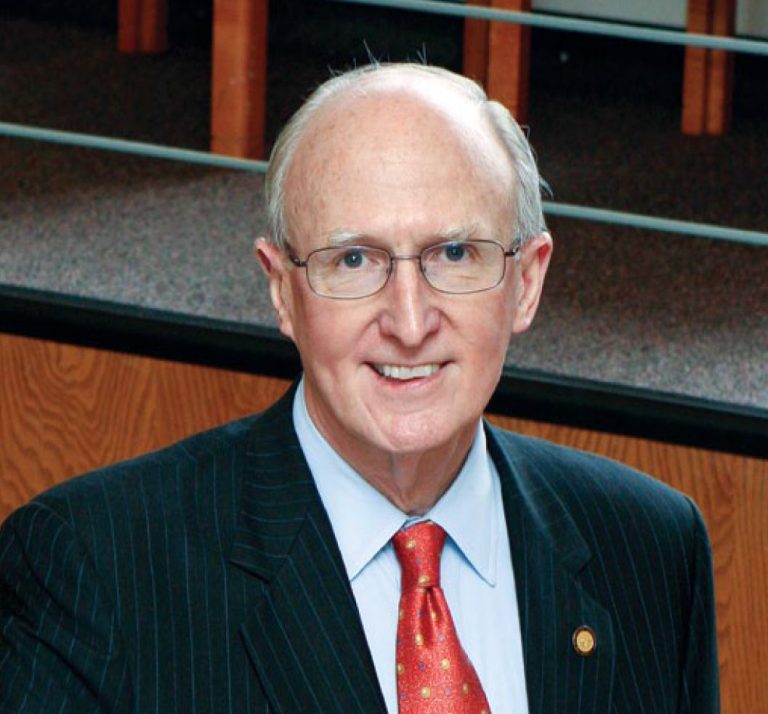
Dr. Robert A. Scott
College and university campuses are intended to be places of discovery, development, and debate. They are places designed to advance student knowledge, skills such as writing, speaking, and listening, abilities such as analysis and leadership, and values such as teamwork and respect for others.
In classrooms and during community gatherings, experts share knowledge and students are invited to exchange and debate varying points of view and learn from one another’s experience. This has always been the case, even when emotions are high as in the case with the Hamas-Israel war. Unfortunately, in response to recent events, the media have focused almost entirely on elite institutions where billionaire bullies seem to believe that wealth equals wisdom.
Antisemitism, Islamophobia and racism are facts of life in society at large and intrude upon the campus as well. But what these terms mean can vary. Antisemitism is especially complex: it can mean anti-Jewish, anti-Israel’s existence, anti-Israeli government policy, and/or anti-Zionist, depending upon one’s perspective. The term has been applied by some to those who criticize the policies of the government of Israel, even if neither its people nor its right to exist are questioned.
There have been acts of anti-Israel, anti-Muslim and racial bias on campuses, to be sure. There have been marches and leaflets in support as well. Now Congress and the Department of Education Office of Civil Rights are gearing up for investigations of antisemitism in American higher education. Republican Rep. Elia Stefanik of New York is sponsoring H. Res. 927 “Condemning antisemitism on university campuses”.
The goal of higher education is to promote freedom of inquiry and free speech. The campus should be safe, but not necessarily intellectually comfortable. After all, questioning assumptions and assertions can cause discomfort. However, this does not ignore the fact that some Jewish students, faculty and staff feel uncomfortable in discussions with those who support human rights for Palestinians even as they support the right of Israel to exist. These are complex issues. People in and out of Israel can hold in mind two thoughts at the same time: security for Israel as an independent state and sympathy for Palestinians as members of the human family.
We should not be more critical of youthful exuberance for justice and the rule of law than we are with the actions of elected officials who deny our nation’s history of racism, the evidence of human-caused climate change and the rampant rise in income inequality as a matter of public policy.
Incidents of hate on a campus require response. If the incidents are marches and rallies or anonymous posters expressing hate or worse for Jews or Israel or Muslims or others, they should be addressed. University leaders can do this without resorting to political rhetoric. Current examples include the Dartmouth College series sponsored by professors from Jewish and Islamic Studies, and the programs of the American Historical Association to assist teachers and professors in how to teach about the current war.
College campuses are places where the idealism and aspirations of young people can be nurtured by examining the lessons of history, especially the history of those deemed “others.” Students can be prepared for their roles as citizens and professionals through campus-wide discussions that honor civil discourse and respect for evidence.
The time-honored tradition of “teach-ins” is an appropriate response because often those claiming justice for their side do not know the history of the issues in contention. For example, what was the Balfour Declaration of 1917 and the so-called British Mandate in Palestine? What was to be the fate of the people living on the land designated for a Jewish state? What is the relationship of conflicts in Yemen, Lebanon and Egypt to those in Israel and Gaza?
What is the history of governance in Gaza? How would the territory of present-day Israel be changed if Palestine were recognized as an independent state? Why are certain words and phrases deemed offensive? What is the relationship of these questions to the Nazi-caused Holocaust? Discussions of these and similar questions help us think about the current crises in the Middle East.
A university seeks truth, teaches and expands knowledge through questions. Ideologues close their eyes, ears and minds to viewpoints that differ from their own, including questions that challenge assumptions. They do not seem to know that one can be “right” without the other being wrong, that acknowledging the humanity of one group does not deny the humanity of another.
This perspective is not to deny the fact of antisemitism, Islamophobia and racism or the reality of the tragic events of Oct. 7, 2023. It is to use the moral authority of the university to foster respectful dialogue and peaceful engagement based on a knowledge of facts and an appreciation of different points of view. It is to find in a world of conflict a vision of hope.
Dr. Robert A. Scott, president emeritus, Adelphi University and Ramapo College of New Jersey; author, “How University Boards Work,” Johns Hopkins University Press, 2018







Important topic to pursue and wise comments. The more facts that can be put on the table, the better we can both understand and articulate disparate viewpoints. Another reason to support commentary such as your own.
Judith
Two comments –
1 – the Balfour Declaration was 1917.
2 – there seems to be very closed minds on this issue and no amount of free inquiry will change most minds, particularly on the college campuses. Any attempt to delegitimize Israel’s right to exist smacks of the genocide that the “other side” is wailing about. How do you reconcile the one side’s failure to acknowledge that? Too complicated for easy answers, when most are not looking for answers.
Thank you Judith.
Mark, thanks for catching my typo. I had omitted a few words and was left with 1948. We have changed it online. I agree about the ongoing failure to ask questions and listen to answer.